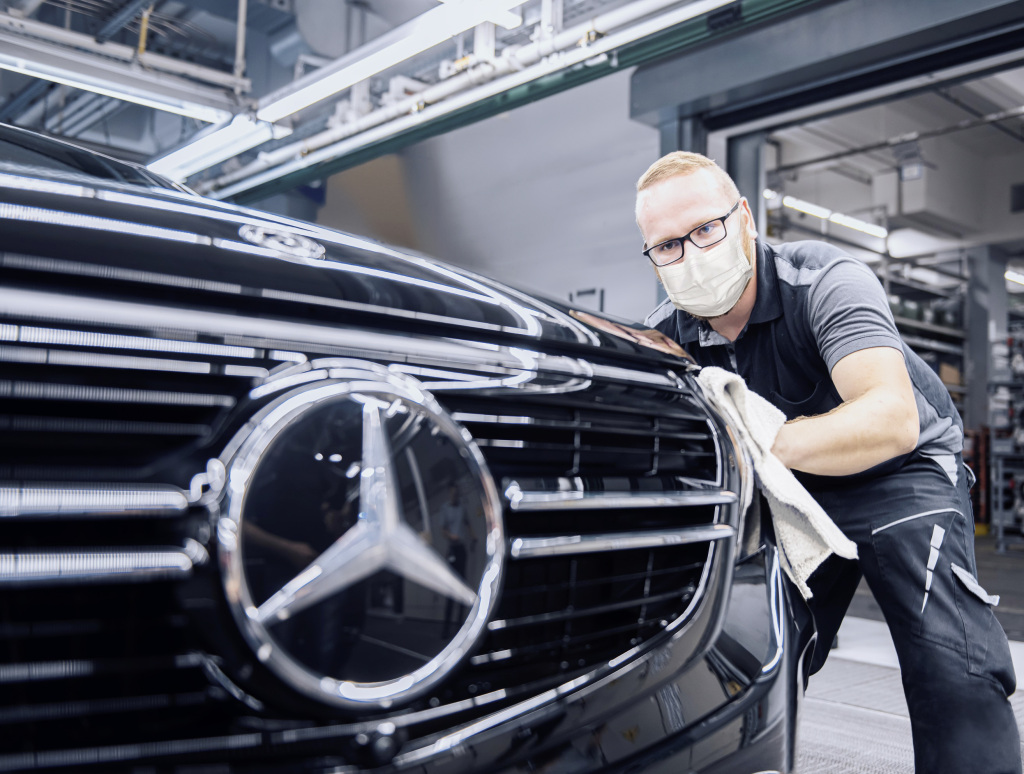Mercedes does not want to lose its position in the market for cars powered by fossil fuels, which are not very compatible with the environment, which has led it to occupy the penultimate position among the brands with the most emissions according to T&E and JATO.
With this idea in mind and the firm intention of gaining a foothold in the market with the longest distance represented by the electric car, the German manufacturer has created the “Ambition 2039” initiative, meaning the strategic approach Mercedes-Benz.
To make this mission a reality, the German group aims to have eight 100% electric models by 2022. To this end, the global Mercedes-Benz production network is preparing to integrate its Mercedes-EQ models into series production at its existing plants.
In the presentation of this green initiative, the German brand confirms its firm commitment to cars with internal combustion engines with plug-in hybrid technology. They aspire to “have 25 model variants by 2025”.
Mercedes aims to have, by 2025, three times more cars still powered by electrified gasoline and diesel engines than zero-emission electric ones.
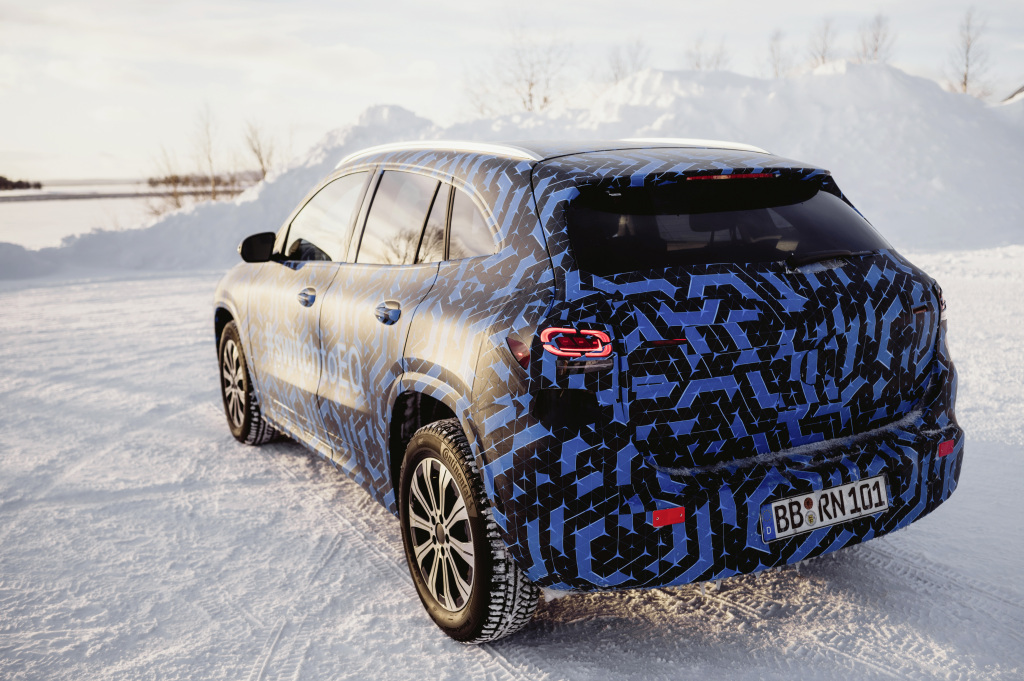
Der EQA bei der Wintererprobung: Die Produktion startete Ende 2020 im Mercedes-Benz Werk Rastatt. Die Weltpremiere ist Anfang 2021. The EQA during winter testing: Production started at the end of 2020 at the Mercedes-Benz Rastatt plant in Germany. The world premiere is at the beginning of 2021. 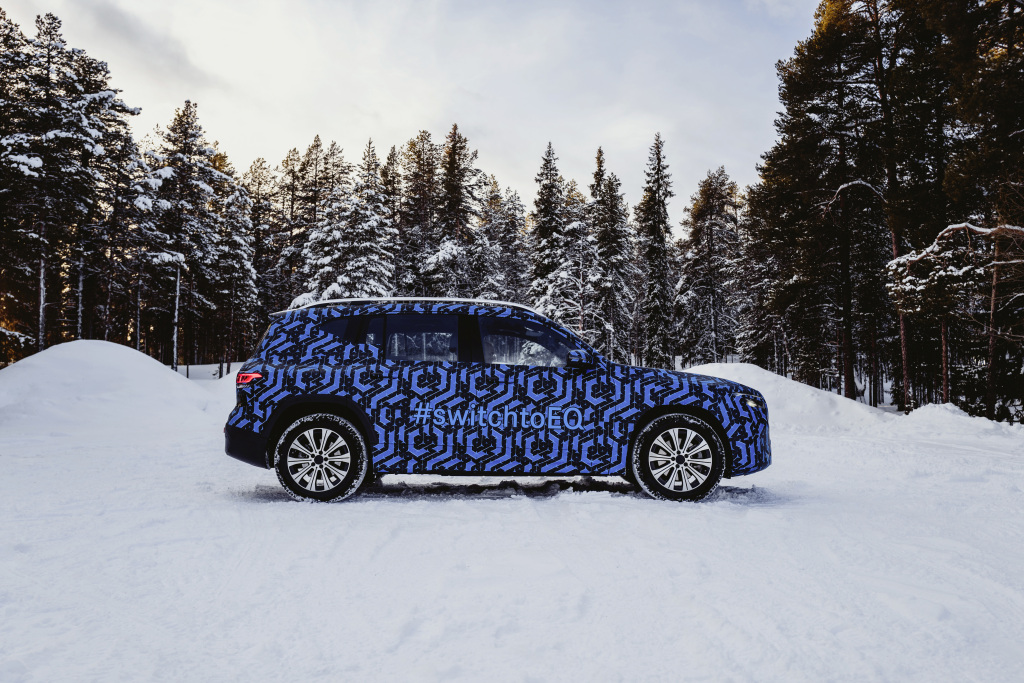
Der EQB bei der Wintererprobung: Die Produktion startet Ende 2021 im Mercedes-Benz Werk Kecskemét in Ungarn und im Werk Peking von Beijing Benz Automotive Co. Ltd (BBAC) in China. The EQB during winter testing: Production starts at the end of 2021 at the Mercedes-Benz plant in Kecskemét in Hungary and at the Beijing plant of Beijing-Benz Automotive Co. Ltd (BBAC). 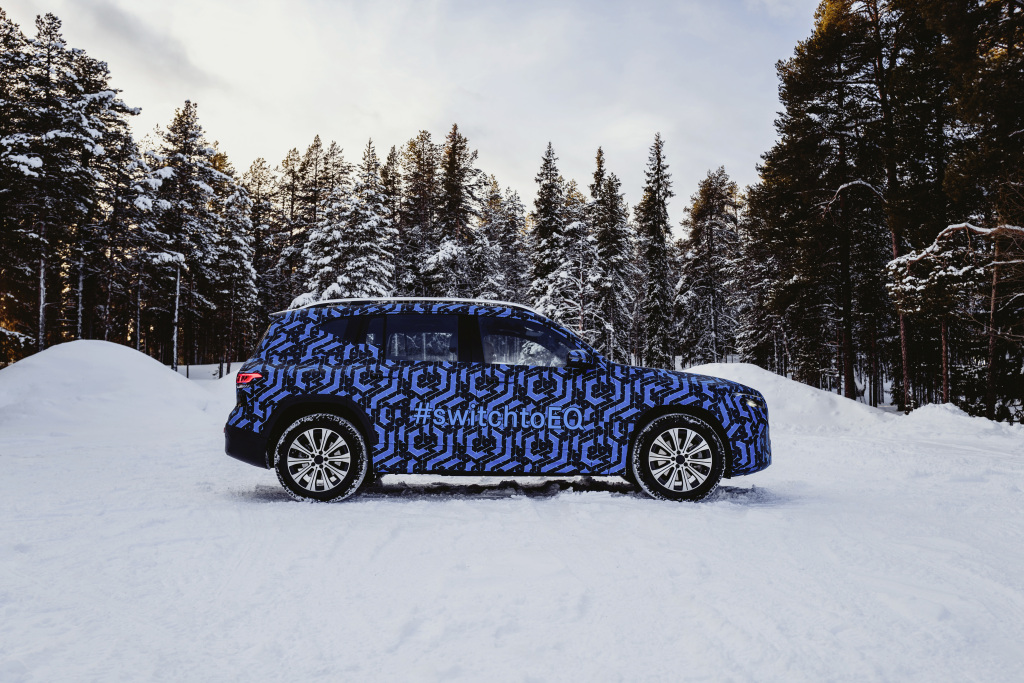
Der EQB bei der Wintererprobung: Die Produktion startet Ende 2021 im Mercedes-Benz Werk Kecskemét in Ungarn und im Werk Peking von Beijing Benz Automotive Co. Ltd (BBAC) in China. The EQB during winter testing: Production starts at the end of 2021 at the Mercedes-Benz plant in Kecskemét in Hungary and at the Beijing plant of Beijing-Benz Automotive Co. Ltd (BBAC). 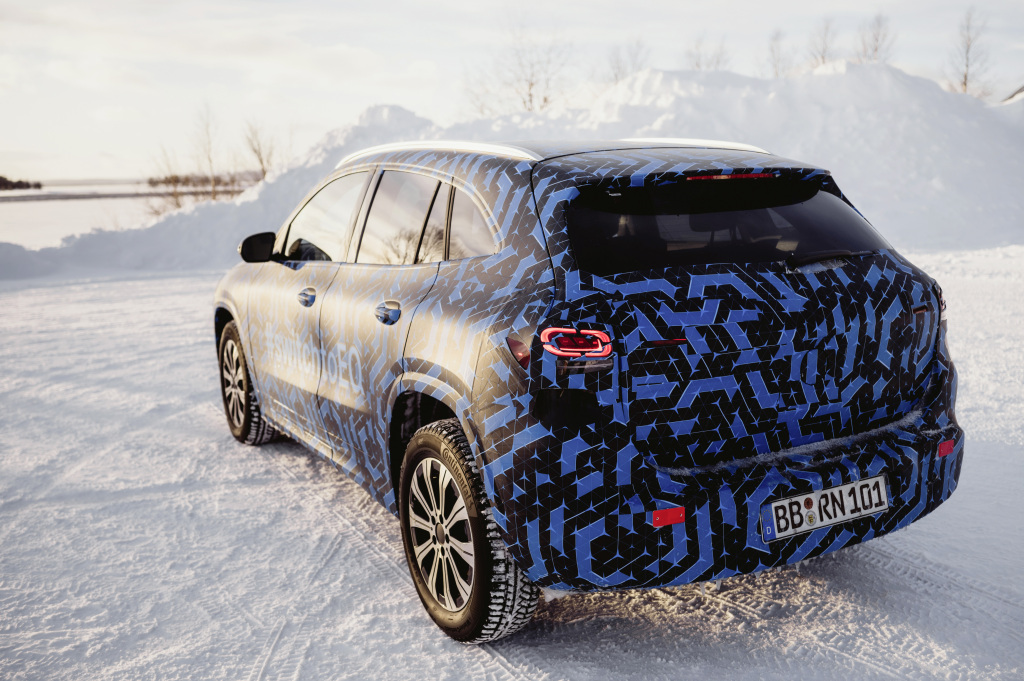
Der EQA bei der Wintererprobung: Die Produktion startete Ende 2020 im Mercedes-Benz Werk Rastatt. Die Weltpremiere ist Anfang 2021. The EQA during winter testing: Production started at the end of 2020 at the Mercedes-Benz Rastatt plant in Germany. The world premiere is at the beginning of 2021.
The EQS, the first luxury electric sedan from Mercedes-Benz, will start in the first half of 2021 at factory 56 in Sindelfingen, Germany. With the launch of the EQA electric compact SUV production at the Rastatt plant and Germany and the recent decision to locate EQB production at the Hungarian plant in Kecskemét, the company is taking necessary steps to make its portfolio of products are CO2 neutral.
The company’s turnaround sets the trend for large automakers who have finally realized that the market for internal combustion engine (ICE) cars has an expiration date.
More than a step towards the electric car, the race to jump to the new mobility seems like a run-over approach at the last minute, given the avalanches of news of future models by the different traditional producers, to which are added to the new and exciting proposals from new companies such as Rivian, Nio, or Lucid Motors, to name a few.
Faced with this phenomenon, it is now time to take the new format that mobility will take seriously, where not always more than 100 years of experience are a guarantee of success in the face of the technology and solutions that electric vehicles contain.
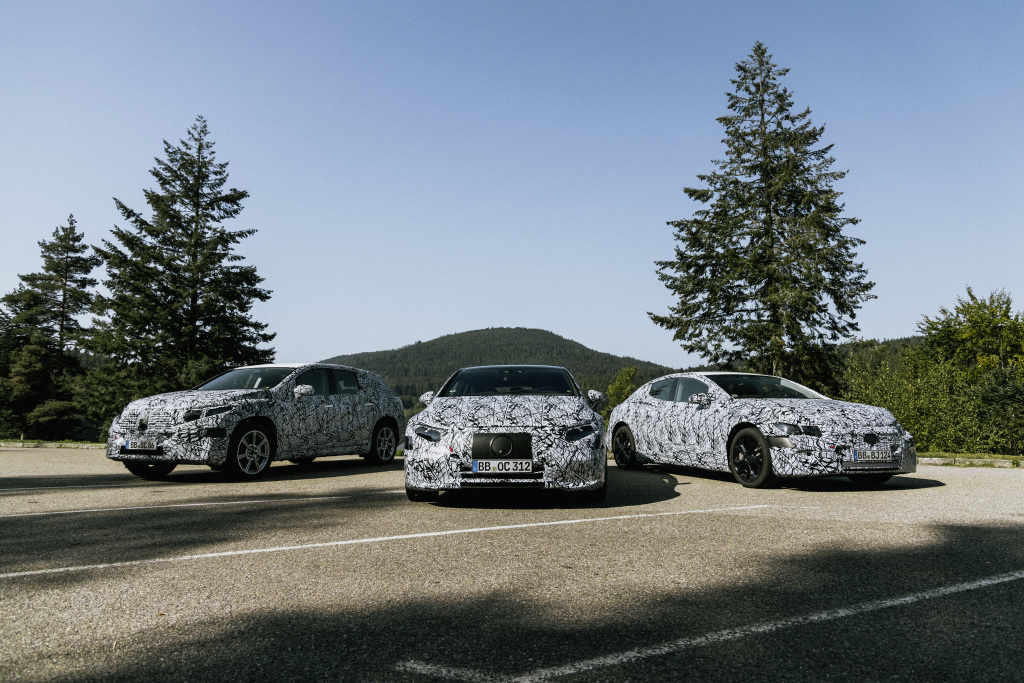
Mercedes-Benz EQ Erprobung Mercedes-Benz EQ testing 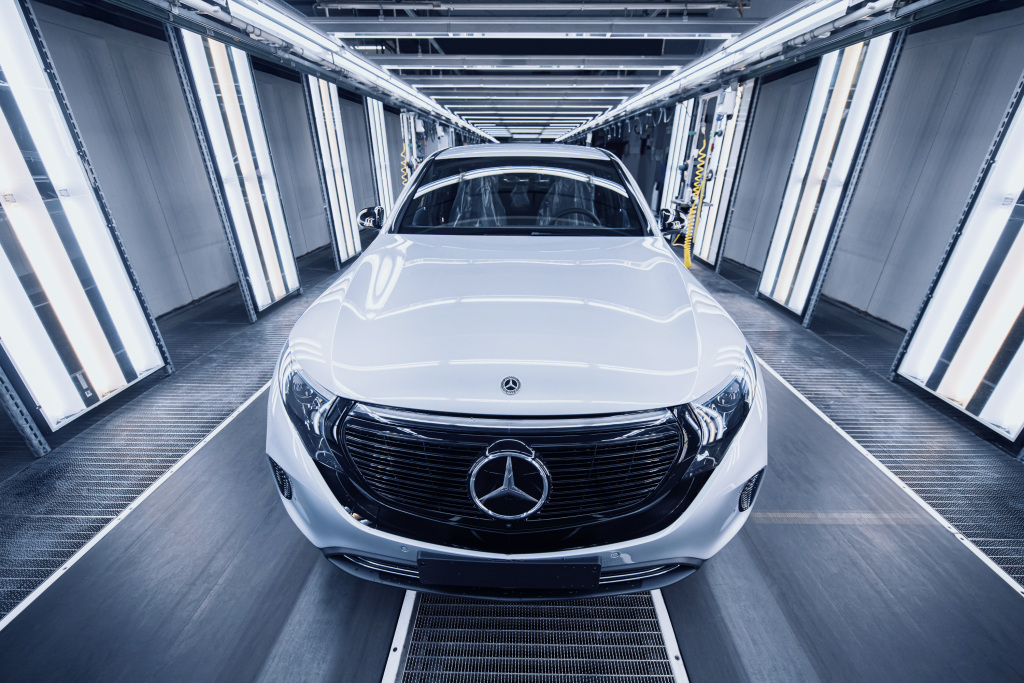
Im Mai 2019 wurde der EQC 400 4MATIC (Stromverbrauch kombiniert: 21,3-20,2 kWh/100 km; CO2-Emissionen kombiniert: 0 g/km) als rein elektrisches Fahrzeug in die laufende Serienfertigung des Mercedes-Benz Werk Bremen integriert. Dort wird er auf derselben Linie produziert wie die C-Klasse Limousine und das T-Modell, der GLC sowie das GLC Coupé.;Stromverbrauch kombiniert: 21,3-20,2 kWh/100 km; CO2-Emissionen kombiniert: 0 g/km* In May 2019, the EQC 400 4MATIC (combined power consumption: 21.3-20.2 kWh/100 km; combined CO2 emissions: 0 g/km), as a purely electric vehicle, was integrated into the ongoing series production of the Mercedes-Benz plant in Bremen. It is produced there on the same line as the C-Class Saloon and Estate as well as the GLC and GLC Coupé.;Combined power consumption: 21.3-20.2 kWh/100 km; combined CO2 emissions: 0 g/km* 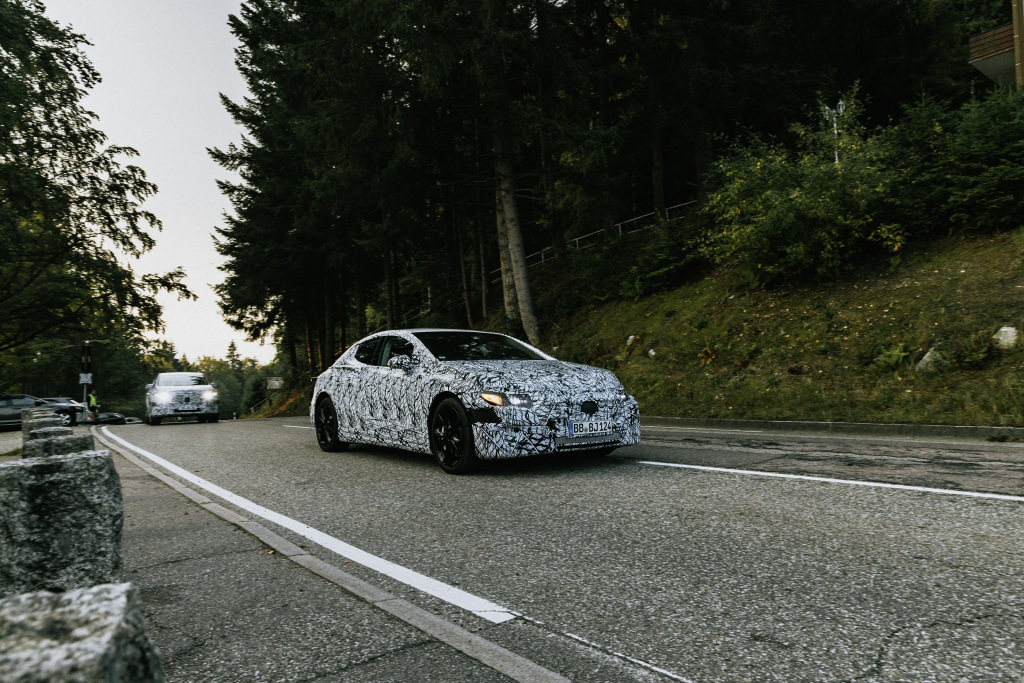
MERCEDES-EQ. Der getarnte EQE Prototyp auf Erprobungsfahrt. MERCEDES-EQ. The EQE prototype on test drive.
In 2020, the big brands are finally jumping to the car’s digitization, studying new scooter-type platforms, and looking for how to achieve maximum efficiency when squeezing every kWh from the battery.
Obtaining the efficiency of Tesla or Lucid Motors is not achieved in two days, making it possible to understand that brands such as Volkswagen or Mercedes do not currently have a range comparable to Tesla covering various types of vehicles.
With its latest announcement, Mercedes-Benz aims at leadership in electric motorization and vehicle software, where local battery production will be a crucial success factor for the brand’s electric offensive.
Markus Schäfer, Member of the Board of Directors of Daimler AG and Mercedes-Benz AG; Head of Daimler Group Research and COO Mercedes-Benz Cars: “With its ‘Electric First’ strategy, Mercedes-Benz is continuously on the path to CO2 neutrality and is investing heavily in transformation. Our vehicle portfolio becomes electric, and thus also our global production network with vehicle and battery factories. We intend to lead in the field of electric mobility and focus, in particular, on battery technology. We are taking a holistic approach, ranging from research and development to production, and includes strategic cooperation.”
The plan presented to the public by Mercedes details the locations where the production of the new range will begin, with which they seek to find their place among 100% electric cars. The factories in charge of producing the new vehicles will be:
Plant 56 in Sindelfingen (Germany) will be responsible for launching the EQS luxury electric sedan in the first half of 2021.
Production of the first fully-electric compact SUV EQA will begin in Rastatt, Germany, and at the Beijing facility in China in 2021.
At the factory located in Kecskemét (Hungary), it has been decided to manufacture the second fully-electric compact SUV EQB. The start of production is scheduled for 2021; in parallel, it will also start manufacturing at the plant in Beijing (China)
The Mercedes-Benz plant in Bremen plans to start production of the EQE electric sedan in 2021, something that the factory in Beijing (China) will do a little later.
Lastly, at the Germans’ plant in the United States, the EQS and EQE SUV variants begin production in 2022 in Tuscaloosa.
By 2022 the three-pointed star brand will produce eight Mercedes-EQ electric vehicles at seven locations on three continents. All this thanks to global investments in flexibility and technical equipment with future-oriented Industry 4.0 solutions.

